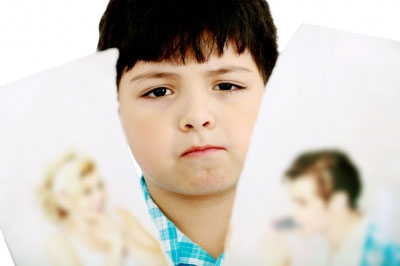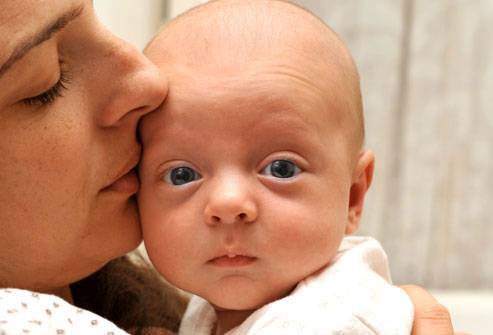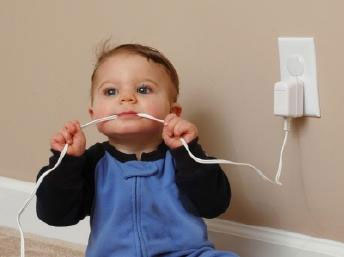Domestic violence is a serious crime. Here are a few things a victim can do to safeguard herself and her children. Domestic violence takes place in homes all over the world. According to a United Nations report, two thirds of married Indian women are victims of domestic violence. In many cases, the violence is also extended to the children. No individual wants to be a victim of this form of abuse. However, in many cases, the victim may not immediately be able to walk out of this situation. In such a scenario, there are some ways to minimise the danger. In this articleDefinition of Domestic ViolenceMinimising the Dangers of Domestic ViolenceDefinition of Domestic Violence Domestic violence in a relationship is a term given to a situation where one partner seeks to subjugate the other by means of control or causing fear. It may involve actual physical abuse like making threats, hitting the partner, sexual assault, etc. Emotional abuse is also part of domestic violence. This could range from verbally abusing the partner and making her feel worthless to isolating the victim by not giving her any money or allowing her to leave the house. No matter what the form of violence, it is an extremely traumatic time for the victim. She may not be able to walk out of such a relationship, especially if she is financially dependent on her abuser. This takes on a greater significance if there are children involved in the relationship. A victim may have no other choice but to remain with her abuser because she may not be able to provide for her family if she were to leave and take the children with her. Minimising the Dangers of Domestic Violence A victim does not want to willingly continue living in an abusive relationship. However, until circumstances improve, she may have no choice but to continue living with her abuser. In this situation, there are a few things she can do to try to prevent serious injury to members of her family. Avoid certain areas: A victim cannot control where her abuser is going to attack her. However, she and her children can take a few precautions. If the abuser confronts her or the children and starts arguing with them, be prepared to be attacked. Avoid being attacked in an area like the kitchen or bathroom. These are small enclosed spaces with only a single entry or exit point. If any member of the family is in either of these places when the abuser confronts her, she should back away slowly and try to exit the room. This should be done discreetly, so as not to trigger the violent instincts of the abuser. A victim must never appear as if she is trying to run away. Not only are areas like the kitchen and bathroom small, they are also filled with potential weapons. These include knives, razors, plates, etc. Similarly, keep potential weapons out of reach or not easily accessible to your abuser. Objects like heavy bowls, knives, rolling pins, etc. should be kept inside cabinets so that the abuser is less likely to use them. Keep children informed: Children are living in the same home and are definitely going to be affected by the violence. Explain to them what is happening, in a calm and rational manner. Make sure that they know it is not their fault. Children are very sensitive and often perceive situations as being caused due to their behaviour. Make sure that children do not harbour any guilt over the situation. Make sure that children do not get involved in any of the violence. If they hear a fight, they should stay out of sight or retreat to their room. At no time should they attempt to interfere. Children will naturally want to try to protect the abused parent. However noble the gesture, it is one of the main reasons why children get hurt. An abuser might turn on the children in a fit of rage and strike them. At the same time, the abused partner may not be in a position to attempt to step in and shield the children. For an abused parent, her first priority should still be to protect her children at all costs. A victim of domestic violence cannot be blamed for her situation. Although she may not be able to leave her home, there are ways in which she can seek help. The police are duty bound to register a complaint and investigate the situation if a victim approaches them. In addition, there are a number of non-governmental organisations, which provide legal and financial aid to victims of domestic violence.
Domestic violence is a serious crime. Here are a few things a victim can do to safeguard herself and her children. Domestic violence takes place in homes all over the world. According to a United Nations report, two thirds of married Indian women are victims of domestic violence. In many cases, the violence is also extended to the
children. No individual wants to be a victim of this form of abuse. However, in many cases, the victim may not immediately be able to walk out of this situation. In such a scenario, there are some ways to minimise the danger.
Definition of Domestic Violence
Domestic violence in a relationship is a term given to a situation where one partner seeks to subjugate the other by means of control or causing fear. It may involve actual physical abuse like making threats, hitting the partner, sexual assault, etc. Emotional abuse is also part of domestic violence. This could range from verbally abusing the partner and making her feel worthless to isolating the victim by not giving her any money or allowing her to leave the house.
No matter what the form of violence, it is an extremely traumatic time for the victim. She may not be able to walk out of such a relationship, especially if she is financially dependent on her abuser. This takes on a greater significance if there are children involved in the relationship. A victim may have no other choice but to remain with her abuser because she may not be able to provide for her family if she were to leave and take the children with her.
Minimising the Dangers of Domestic Violence
A victim does not want to willingly continue living in an abusive relationship. However, until circumstances improve, she may have no choice but to continue living with her abuser. In this situation, there are a few things she can do to try to prevent serious injury to members of her family.
Avoid certain areas: A victim cannot control where her abuser is going to attack her. However, she and her children can take a few precautions. If the abuser confronts her or the children and starts arguing with them, be prepared to be attacked. Avoid being attacked in an area like the kitchen or
bathroom. These are small enclosed spaces with only a single entry or exit point. If any member of the family is in either of these places when the abuser confronts her, she should back away slowly and try to exit the room. This should be done discreetly, so as not to trigger the violent instincts of the abuser. A victim must never appear as if she is trying to run away.
Not only are areas like the kitchen and bathroom small, they are also filled with potential weapons. These include knives, razors, plates, etc. Similarly, keep potential weapons out of reach or not easily accessible to your abuser. Objects like heavy bowls,
knives, rolling pins, etc. should be kept inside cabinets so that the abuser is less likely to use them.
Keep children informed: Children are living in the same home and are definitely going to be affected by the violence. Explain to them what is happening, in a calm and rational manner. Make sure that they know it is not their fault. Children are very sensitive and often perceive situations as being caused due to their behaviour. Make sure that children do not harbour any guilt over the situation.
Make sure that children do not get involved in any of the violence. If they hear a
fight, they should stay out of sight or retreat to their room. At no time should they attempt to interfere. Children will naturally want to try to protect the abused parent. However noble the gesture, it is one of the main reasons why children get hurt. An abuser might turn on the children in a fit of rage and strike them. At the same time, the abused partner may not be in a position to attempt to step in and shield the children. For an abused parent, her first priority should still be to protect her children at all costs.
A victim of domestic violence cannot be blamed for her situation. Although she may not be able to leave her home, there are ways in which she can seek help. The police are duty bound to register a complaint and investigate the situation if a victim approaches them. In addition, there are a number of non-governmental organisations, which provide legal and financial aid to victims of domestic violence.


































